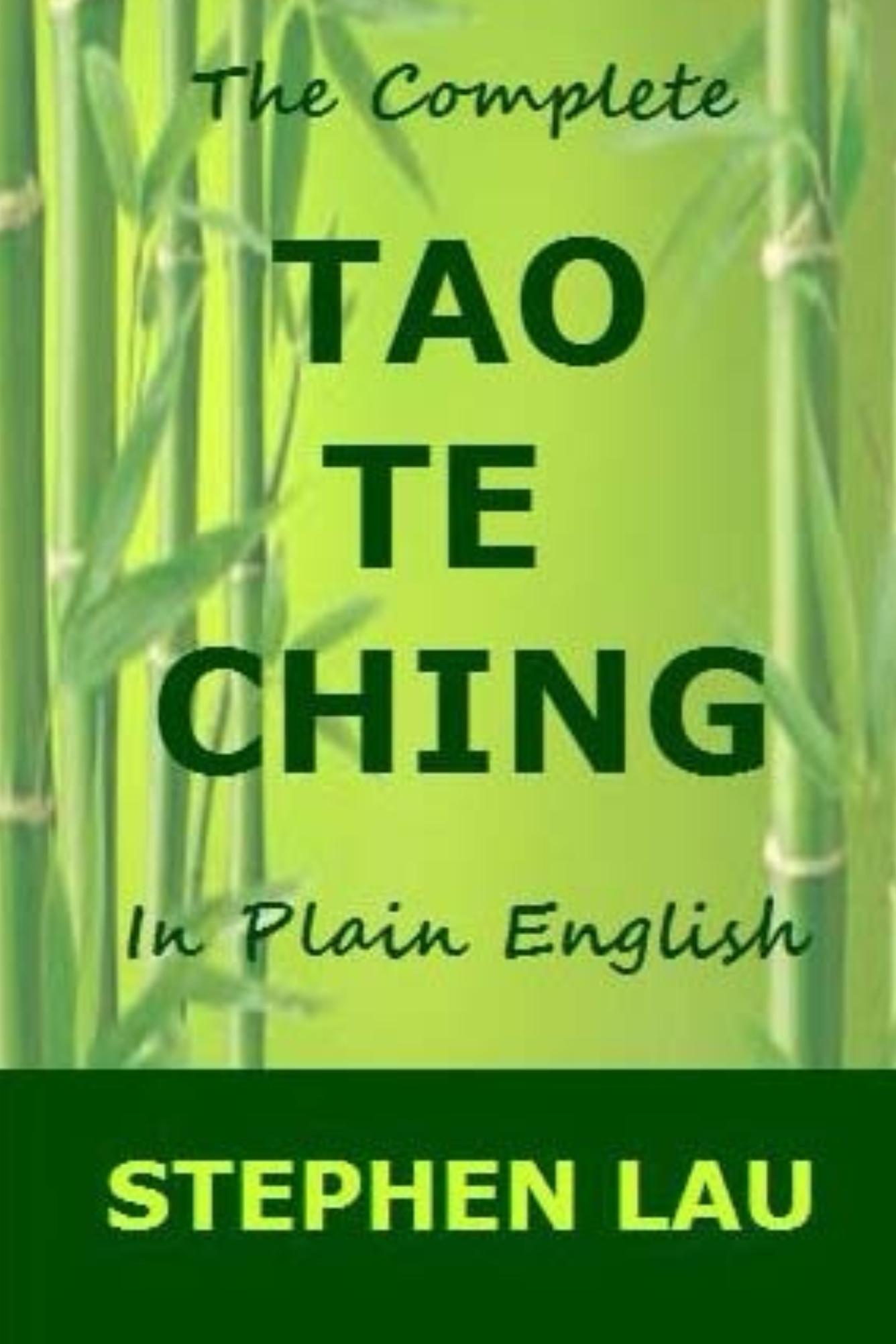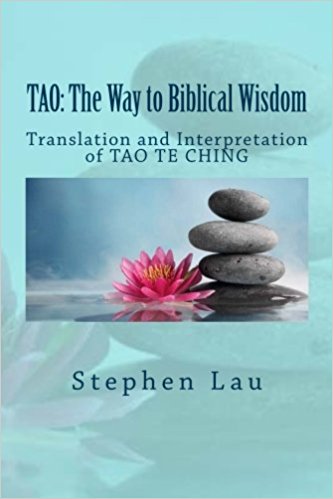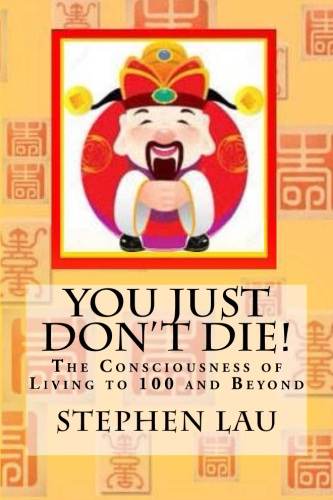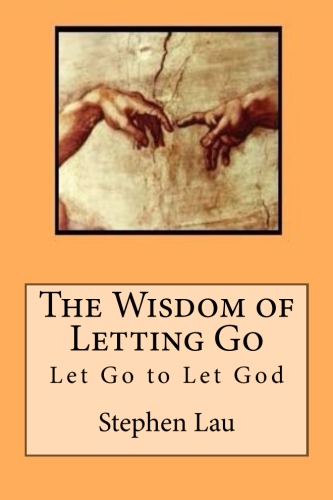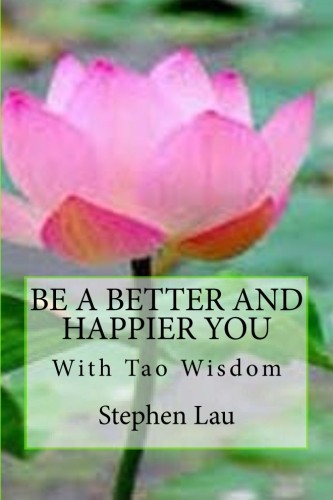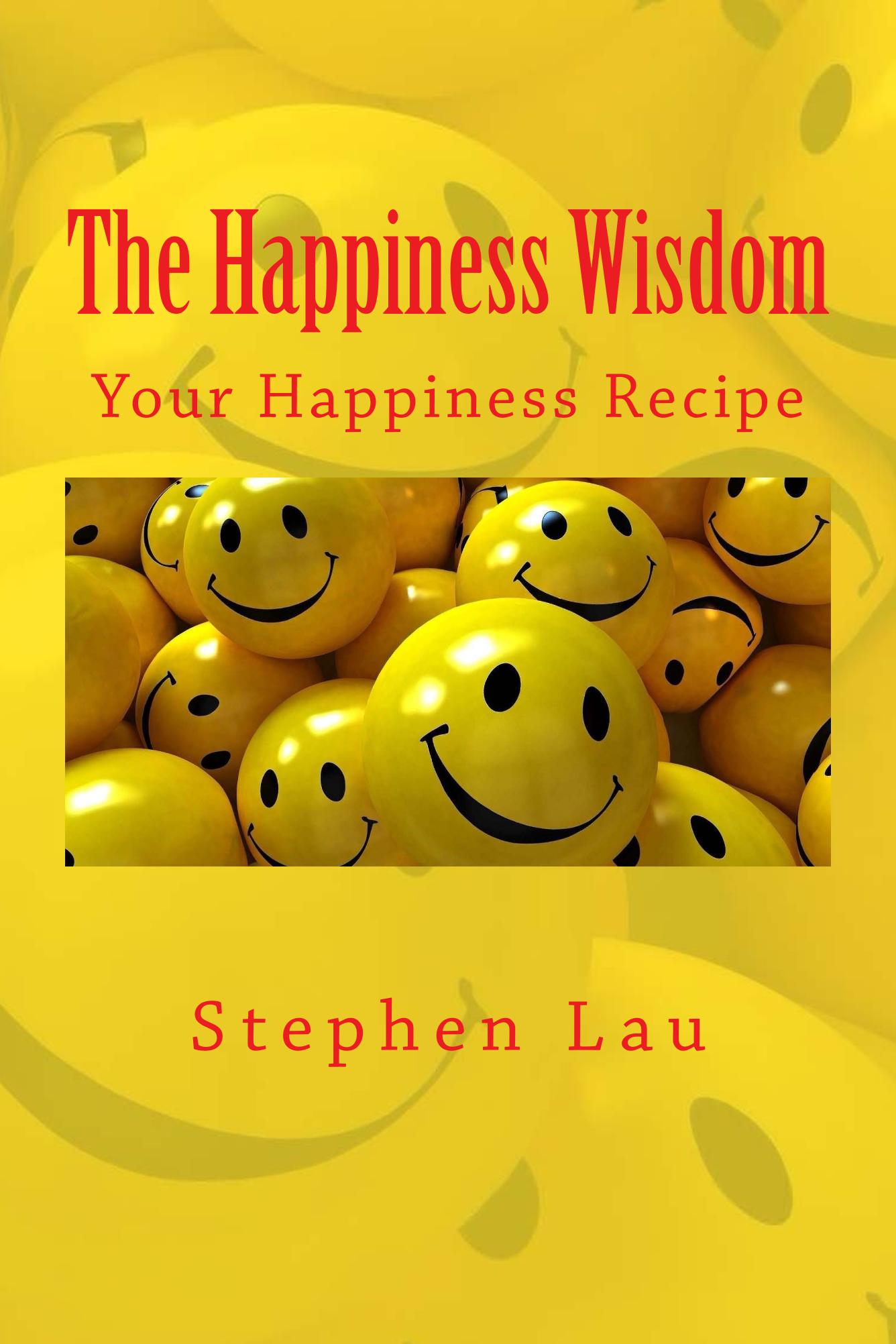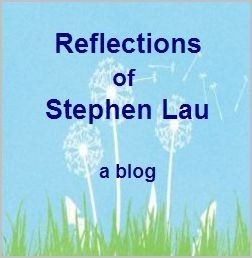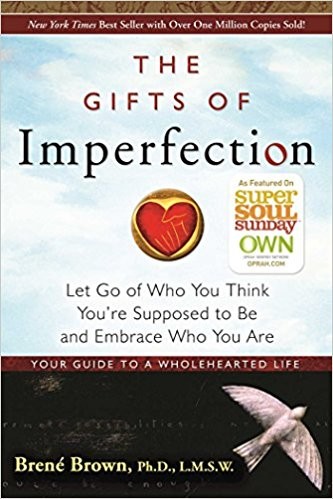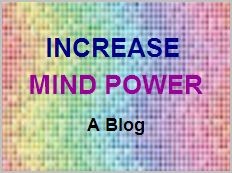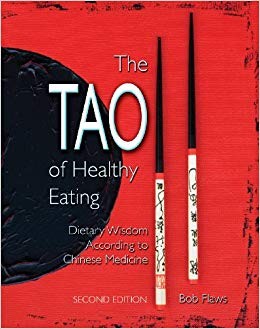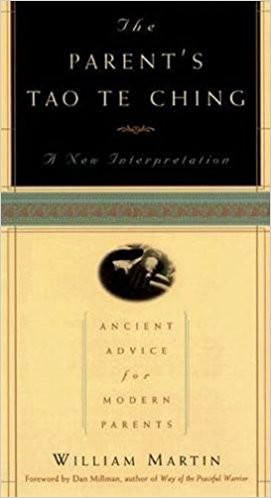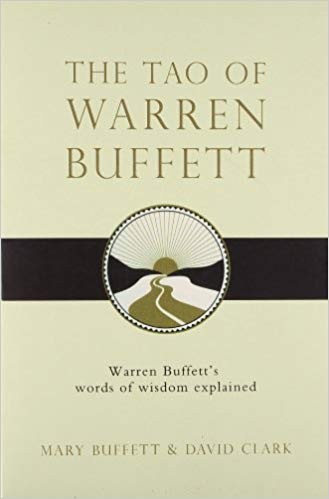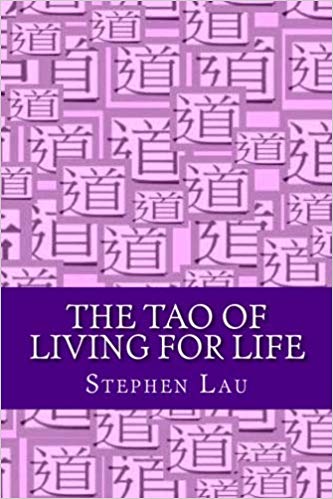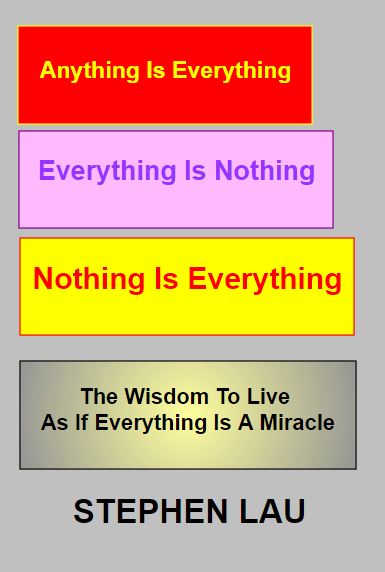


Life is a natural cycle -- life is followed by death, just as day followed by night. Nothing lasts. Learn to let go.
Lao Tzu: “Live in the NOW.” The past was gone, the future is yet to come; only the present is real. It’s a gift; that’s why it is “present.”
If happiness is to be found in things that are outside, instead of inside, yourself, you may have easily become unhappy and depressed.
Albert Einstein: “Thinking is difficult; that is why so few people do it.” To become wiser, you must do your thinking, and do it often.
Tao Wisdom:
”That which shrinks
Must first expand.
That which fails,
Must first be strong."
Everything follows a natural cycle, so accept and embrace.
Spontaneity is the essence of the natural life cycle. What goes up must eventually come down; life begets death.
Intuition of spontaneity is knowing the impermanence of all things: nothing lasts no matter how we strive to keep the impermanent permanent.
Embracing everything is wisdom because it holds the key to enlightenment, which is TAO wisdom.
If Tao wisdom could be summarized in one word, it is the word "humility."
Humility is the enemy of the ego, pride is its friend. Ego is the source of human miseries.
Don't avoid depression, which we all have. The happiness wisdom is to experience it by going through it to become enlightened.
Your ego wants you to become better than others. In the process, it stresses you, making you unhappy.
Lao Tzu: “Live in the NOW.” The past was gone, the future is yet to come; only the present is real. It’s a gift; that’s why it is “present.”
If happiness is to be found in things that are outside, instead of inside, yourself, you may have easily become unhappy and depressed.
Albert Einstein: “Thinking is difficult; that is why so few people do it.” To become wiser, you must do your thinking, and do it often.
Tao Wisdom:
”That which shrinks
Must first expand.
That which fails,
Must first be strong."
Everything follows a natural cycle, so accept and embrace.
Spontaneity is the essence of the natural life cycle. What goes up must eventually come down; life begets death.
Intuition of spontaneity is knowing the impermanence of all things: nothing lasts no matter how we strive to keep the impermanent permanent.
Embracing everything is wisdom because it holds the key to enlightenment, which is TAO wisdom.
If Tao wisdom could be summarized in one word, it is the word "humility."
Humility is the enemy of the ego, pride is its friend. Ego is the source of human miseries.
Don't avoid depression, which we all have. The happiness wisdom is to experience it by going through it to become enlightened.
Your ego wants you to become better than others. In the process, it stresses you, making you unhappy.


HUMAN IMPERFECTIONS
According to Lau Tzu, good and evil exist side by side.
“With the fall of man, good cannot exist without evil.
Man is born with virtues, but grows up with vices.
Likewise, life and death complement each other.
Heaven is eternal life; hell is everlasting death.
Human existence is therefore dualistic:
it can make heaven out of hell, or hell out of heaven.
Faith and lack of faith go along with each other.
The first will be the last, and the last will be the first.”
(Lao Tzu, “Tao Te Ching”, chapter 2)
Suggested Bible verses for further reflection:
“For I know that good itself does not dwell in me, that is, in my sinful nature. For I have the desire to do what is good, but I cannot carry it out.” (Romans 7: 18)
“See now that I myself am he!
There is no god besides me.
I put to death and I bring to life,
I have wounded and I will heal,
and no one can deliver out of my hand.” (Deuteronomy 32: 39)
“Furthermore, tell the people, ‘This is what the Lord says: See, I am setting before you the way of life and the way of death.” (Jeremiah 21: 8)
The bottom line: Given the dualistic existence of man, we should rely not just on human wisdom, but also on Biblical wisdom; as a matter of fact, human wisdom is forever inadequate and imperfect; therefore, it has to be enhanced and enlightened by God’s wisdom, which is infinite and perfect.
Stephen Lau
Copyright© by Stephen Lau
According to Lau Tzu, good and evil exist side by side.
“With the fall of man, good cannot exist without evil.
Man is born with virtues, but grows up with vices.
Likewise, life and death complement each other.
Heaven is eternal life; hell is everlasting death.
Human existence is therefore dualistic:
it can make heaven out of hell, or hell out of heaven.
Faith and lack of faith go along with each other.
The first will be the last, and the last will be the first.”
(Lao Tzu, “Tao Te Ching”, chapter 2)
Suggested Bible verses for further reflection:
“For I know that good itself does not dwell in me, that is, in my sinful nature. For I have the desire to do what is good, but I cannot carry it out.” (Romans 7: 18)
“See now that I myself am he!
There is no god besides me.
I put to death and I bring to life,
I have wounded and I will heal,
and no one can deliver out of my hand.” (Deuteronomy 32: 39)
“Furthermore, tell the people, ‘This is what the Lord says: See, I am setting before you the way of life and the way of death.” (Jeremiah 21: 8)
The bottom line: Given the dualistic existence of man, we should rely not just on human wisdom, but also on Biblical wisdom; as a matter of fact, human wisdom is forever inadequate and imperfect; therefore, it has to be enhanced and enlightened by God’s wisdom, which is infinite and perfect.
Stephen Lau
Copyright© by Stephen Lau
THE WAY TO BIBLICAL WISDOM
The interpretations of TAO TE CHING are as many as its translations. Each author is looking at Lao Tzu’s immortal classic from his or her own perspective-just like the three blind men touching different parts of the same elephant, and describing the elephant.
TAO: THE WAY TO BIBLICAL WISDOM is divided into four parts.
Part One is about the author’s reasons for writing the book, and also why "Tao Te Ching" is a "must read" for anyone who seeks real human wisdom.
Part Two is the author’s own translation of the 81 chapters of "Tao Te Ching" with references to the Bible; each chapter is followed by some selected Bible verses for further reflection on what Lao Tzu has said.
Part Three is about the essentials of Tao wisdom with detailed explanation in simple language and with everyday life examples to help the reader understand the profound wisdom of Lao Tzu.
Part Four is an explanation of how Tao wisdom may help the reader understand God's wisdom in the Bible. Tao is the Way to Biblical wisdom.
The Way to Biblical Wisdom
Stephen Lau
Copyright©2018 by Stephen Lau
The interpretations of TAO TE CHING are as many as its translations. Each author is looking at Lao Tzu’s immortal classic from his or her own perspective-just like the three blind men touching different parts of the same elephant, and describing the elephant.
TAO: THE WAY TO BIBLICAL WISDOM is divided into four parts.
Part One is about the author’s reasons for writing the book, and also why "Tao Te Ching" is a "must read" for anyone who seeks real human wisdom.
Part Two is the author’s own translation of the 81 chapters of "Tao Te Ching" with references to the Bible; each chapter is followed by some selected Bible verses for further reflection on what Lao Tzu has said.
Part Three is about the essentials of Tao wisdom with detailed explanation in simple language and with everyday life examples to help the reader understand the profound wisdom of Lao Tzu.
Part Four is an explanation of how Tao wisdom may help the reader understand God's wisdom in the Bible. Tao is the Way to Biblical wisdom.
The Way to Biblical Wisdom
Stephen Lau
Copyright©2018 by Stephen Lau
SIMPLE AND PROFOUND HUMAN WISDOM
Tao wisdom is the ancient wisdom from China based on the sage Lao Tzu who was born a few centuries before Christ.
Lao Tzu was the author of the immortal ancient classic "Tao Te Ching" which has become one of the most translated works in world literature. The word "tao" literally means "way" or "pathway", and hence "the Way" referring to Tao wisdom, which is the wisdom of Lao Tzu. It must be pointed out that Lao Tzu was reluctant to write "Tao Te Ching" because he believed that true wisdom must be intuited and therefore could never be expressed in words. But he was told explicitly that he would be permitted to leave China for Tibet until he had finished his book. Very much against his will, he deliberately put down his wisdom in exactly 5,000 words, without any punctuation mark. As a result, his profound wisdom was concise, intriguing, and even controversial.
Tao wisdom plays a pivotal role in wisdom in living. For one thing, Tao wisdom enables you to live a stress-free life, which is almost impossible in this day and age. For another, it shows you how to have an empty mind, giving clarity of thinking without any conditioned mindset. The essentials of Tao wisdom provide a blueprint for living a life of balance and harmony, which is the prerequisite of self-healing or recovery from any autoimmune disease.
Tao wisdom in simple but profound; it is paradoxical but illuminating. It is all-embracing in that it is applicable to every aspect of life and living. Tao wisdom is universal and timeless wisdom. To fully understand and internalize Tao wisdom in living, you must, first and foremost, have an open mind or an empty mind that would be receptive to unconventional thinking. In fact, you must not only think out of the box but, more importantly, to create your own box of thinking. Your mind must not have any preconditioned ideas about anything. That is to say, you must have an empty mind for reverse thinking before you can intuit the true wisdom of Tao.
"Ever desireless, one can see the mystery.
Every desiring, one sees only the manifestations.
And the mystery itself is the doorway to all understanding."
(Lao Tzu, "Tao Te Ching," Chapter One)
Stephen Lau
Copyright© by Stephen Lau

IN THE NOW
One of the essentials of true human wisdom is its focus on the now or the present moment.
Living in an age of speed, highlighted in many different areas of our lives, such as technology daily communication, and transportation, many of us may have accepted speed as part and parcel of our lives. For example, in our jobs, speed is often deemed as a tool as well as a testament to our survival and advancement in our careers. As a matter of fact, many of us have become so addicted to speed that we are more or less living in the future, rather than in the present. In addition, for those who are suffering from mental disorders, such as anxiety or depression, they are more or less living in the past, being obsessed with unhappy past experiences or preoccupied with worries about the future; unable to let go of the past or the future, they are thus unable to live fully in the present.
But the "now" is the gift from our Creator, and that is why it is called "present." Appreciate the gift of the present moment, which is essential to wisdom in living.
However, it is not easy to live in the present. It is because it requires much wisdom-the wisdom of Tao, or the wisdom of Lao Tzu that was expressed in his book Tao Te Ching, the immortal classic which has been extensively translated worldwide, only second to the Bible.
To truly understand and fully appreciate Tao wisdom, mindfulness is indispensable. What is mindfulness? Mindfulness is acute awareness of the present moment; specifically, what is happening in the now. In this day and age, there are too many distractions that prevent us from focusing on the present moment. For example, when we are eating, we are frequently distracted by many things around us, such as the cell phone, the radio, or the television, among others. Mindfulness means we should be focusing on what we are doing right now-that is, eating. Mindfulness requires deliberate practice. Focusing on our breaths is an excellent way to practice mindfulness. We can be mindful of our inhalation and exhalation, noticing how the air fills up our lungs as we breathe in and how our diaphragms deflate as we breathe out. Mindfulness of our breaths trains our minds to concentrate, and thus instrumental in making our minds stay in the present moment.
We are not living in the present if we focus too much on speed. Focusing on speed means we are constantly projecting our thoughts onto what is going to happen next. One of the reasons why many of us subconsciously crave speed in our lives is that hurry numbs our senses. To illustrate, when we slow down, we may easily succumb to fear and doubt about what we are going to do, so we conveniently and subconsciously choose addiction to speed to numb ourselves in order to avoid anything unpleasant: we just don't want to give ourselves the present moment to worry about the future.
But the present moment is the only reality in life: the past was gone, and the future is yet to come. The good news is that we can all receive the gift of the present moment to live our lives as if everything is a miracle. The wisdom in living is to live in the present moment.
Tao Wisdom in the Now
Learn to appreciate and receive the gift of the present moment. To do that, practice the following:
(1) Indulge yourself in silence. Silence is a way of slowing down and stopping yourself as well as your thoughts. For centuries, sages worldwide have used meditation, which is conscious stillness of the mind, for inspiration and enlightenment. Once the thinking mind remains at the present moment, it begins to slow down, and sees the reality of everything with greater clarity and deeper insight. Therefore, to slow down, embrace silence deliberately. Do not be afraid of silence. Many people are afraid of quietude or complete silence because they have become so used to sounds and noises, which symbolize motion and speed. Even if you do not meditate, spend some time everyday to sit in silence, without turning on the music or the television. Enjoy your silence to help you be mindful of the present moment.
(2) Concentration is another way to receive the gift of the present moment. Because of our addiction to speed, many of us do not pay full attention to what we are doing at the present moment, especially when we think what we are doing is irrelevant or unimportant. The classic example is talking on the cell phone while driving; the conscious mind is talking, while the subconscious mind is driving. Engaging your full attention on doing your daily chores is also good practice of focusing the mind on the present moment. Try to concentrate on what you are doing, instead of doing something else to distract yourself from the mundane task. Say, when you doing your dishes, focus your full attention on the foam and the running water, instead of listening to the radio or watching the television; you will be surprised that your mind becomes very relaxed because it stays in the present moment.
(3) Good listening also facilitates your receipt of the gift of the present moment. Again, very often many of us are hearing, without listening, because our minds are somewhere else. Learn to listen to relay, listen to communicate, and learn to listen to the sound of silence. Next time, when someone is speaking to you, try to focus your attention on the eyes, the lips of that person, thereby helping your mind stay in the present moment; in that way, you are listening, not just hearing; you are also learning to speak more deliberately and carefully.
Living in the present moment slows down your pace of life, and thus relieves yourself of time-stress, which is detrimental to physical and mental health. Once you have overcome your addiction to speed, you will have a new perspective of how you should live your life, and that is the beginning of wisdom in living.
To find out more about Tao wisdom, read my book Be A Better And Happier You With Tao Wisdom. The wisdom of Tao begins with the power of intent in your mind to know and to learn more about your true “self.” Human wisdom begins with knowing the self: understand how and why it reacts with everyone and everything around. According to Lao Tzu, the absence of the ego-self is the turning point, where you may begin to embark on a different life journey with a different mission. Your “pre-conditioned” mind thus begins the journey of “reverse thinking” which will ultimately transform your life, making you become a better and happier individual.
All in all, living in the now gives you clarity of mind, which is awareness or mindfulness, and that holds the key to understanding the ultimate truths of self, of others, and of things -- which is the essence of human wisdom.
Stephen Lau
Copyright© by Stephen Lau
OUR SINFUL SIDE
“The mind is its own place, and in itself, can make heaven of Hell, and a hell of Heaven.” John Milton
It is the mind that makes the body and the soul-the being of an individual. Unfortunately, the mind also has its own darker side, which creates the darkness of life, and its negativity affects the real self involuntarily.
The darker side of life is a reality, not a myth, and that everyone has a darker side to his or her being. The darker side does not necessarily mean that it is something evil. Any connotation of evil may lead to denial, instead of acceptance.
For example, the sexual abuse of children by Jerry Sandusky and the pedophilia in the Roman Catholic Church, as well as the Ponzi scheme of Bernie Madoff and the scams and rip-offs by some of Wall Street executives are just some of the many examples of the extreme darkness of our society and culture.
In spite of the human inclination to be good, we all show our own darker side every now and then-such as not expressing as much compassion and loving-kindness as we should to our fellow human beings, or telling a white lie-because we are imperfect, and, as such, all human behavior is imperfect.
The Bible calls the dark side of human nature “sin.” None of us is exempt from sin. Life is always an inner struggle between what is perceived in an individual’s moral system as “right” and the dark opposing force inside to do just the very opposite. To make matters worse, most of us are really quite good at self-deception. Either we deceive ourselves into believing that the dark opposing force does not exist in ourselves, or we simply inflate our own personal virtues to overshadow the dark force within us.
Tao wisdom is the essence in the art of living well. It is the profound wisdom of the ancient Chinese sage, Lao Tzu, the author of the immortal classic Tao Te Ching, one of the most translated works in world literature. The book has been popular for thousands of years due to its unconventional wisdom, which is simple but controversial, profound and yet intriguing. To fully understand it, you need to get all the essentials of Tao wisdom.
Tao wisdom shows us how to live in spite of our inadequacy, imperfection, and sinful nature.
The Book of Life and Living
Stephen Lau
Copyright© by Stephen Lau
One of the essentials of true human wisdom is its focus on the now or the present moment.
Living in an age of speed, highlighted in many different areas of our lives, such as technology daily communication, and transportation, many of us may have accepted speed as part and parcel of our lives. For example, in our jobs, speed is often deemed as a tool as well as a testament to our survival and advancement in our careers. As a matter of fact, many of us have become so addicted to speed that we are more or less living in the future, rather than in the present. In addition, for those who are suffering from mental disorders, such as anxiety or depression, they are more or less living in the past, being obsessed with unhappy past experiences or preoccupied with worries about the future; unable to let go of the past or the future, they are thus unable to live fully in the present.
But the "now" is the gift from our Creator, and that is why it is called "present." Appreciate the gift of the present moment, which is essential to wisdom in living.
However, it is not easy to live in the present. It is because it requires much wisdom-the wisdom of Tao, or the wisdom of Lao Tzu that was expressed in his book Tao Te Ching, the immortal classic which has been extensively translated worldwide, only second to the Bible.
To truly understand and fully appreciate Tao wisdom, mindfulness is indispensable. What is mindfulness? Mindfulness is acute awareness of the present moment; specifically, what is happening in the now. In this day and age, there are too many distractions that prevent us from focusing on the present moment. For example, when we are eating, we are frequently distracted by many things around us, such as the cell phone, the radio, or the television, among others. Mindfulness means we should be focusing on what we are doing right now-that is, eating. Mindfulness requires deliberate practice. Focusing on our breaths is an excellent way to practice mindfulness. We can be mindful of our inhalation and exhalation, noticing how the air fills up our lungs as we breathe in and how our diaphragms deflate as we breathe out. Mindfulness of our breaths trains our minds to concentrate, and thus instrumental in making our minds stay in the present moment.
We are not living in the present if we focus too much on speed. Focusing on speed means we are constantly projecting our thoughts onto what is going to happen next. One of the reasons why many of us subconsciously crave speed in our lives is that hurry numbs our senses. To illustrate, when we slow down, we may easily succumb to fear and doubt about what we are going to do, so we conveniently and subconsciously choose addiction to speed to numb ourselves in order to avoid anything unpleasant: we just don't want to give ourselves the present moment to worry about the future.
But the present moment is the only reality in life: the past was gone, and the future is yet to come. The good news is that we can all receive the gift of the present moment to live our lives as if everything is a miracle. The wisdom in living is to live in the present moment.
Tao Wisdom in the Now
Learn to appreciate and receive the gift of the present moment. To do that, practice the following:
(1) Indulge yourself in silence. Silence is a way of slowing down and stopping yourself as well as your thoughts. For centuries, sages worldwide have used meditation, which is conscious stillness of the mind, for inspiration and enlightenment. Once the thinking mind remains at the present moment, it begins to slow down, and sees the reality of everything with greater clarity and deeper insight. Therefore, to slow down, embrace silence deliberately. Do not be afraid of silence. Many people are afraid of quietude or complete silence because they have become so used to sounds and noises, which symbolize motion and speed. Even if you do not meditate, spend some time everyday to sit in silence, without turning on the music or the television. Enjoy your silence to help you be mindful of the present moment.
(2) Concentration is another way to receive the gift of the present moment. Because of our addiction to speed, many of us do not pay full attention to what we are doing at the present moment, especially when we think what we are doing is irrelevant or unimportant. The classic example is talking on the cell phone while driving; the conscious mind is talking, while the subconscious mind is driving. Engaging your full attention on doing your daily chores is also good practice of focusing the mind on the present moment. Try to concentrate on what you are doing, instead of doing something else to distract yourself from the mundane task. Say, when you doing your dishes, focus your full attention on the foam and the running water, instead of listening to the radio or watching the television; you will be surprised that your mind becomes very relaxed because it stays in the present moment.
(3) Good listening also facilitates your receipt of the gift of the present moment. Again, very often many of us are hearing, without listening, because our minds are somewhere else. Learn to listen to relay, listen to communicate, and learn to listen to the sound of silence. Next time, when someone is speaking to you, try to focus your attention on the eyes, the lips of that person, thereby helping your mind stay in the present moment; in that way, you are listening, not just hearing; you are also learning to speak more deliberately and carefully.
Living in the present moment slows down your pace of life, and thus relieves yourself of time-stress, which is detrimental to physical and mental health. Once you have overcome your addiction to speed, you will have a new perspective of how you should live your life, and that is the beginning of wisdom in living.
To find out more about Tao wisdom, read my book Be A Better And Happier You With Tao Wisdom. The wisdom of Tao begins with the power of intent in your mind to know and to learn more about your true “self.” Human wisdom begins with knowing the self: understand how and why it reacts with everyone and everything around. According to Lao Tzu, the absence of the ego-self is the turning point, where you may begin to embark on a different life journey with a different mission. Your “pre-conditioned” mind thus begins the journey of “reverse thinking” which will ultimately transform your life, making you become a better and happier individual.
All in all, living in the now gives you clarity of mind, which is awareness or mindfulness, and that holds the key to understanding the ultimate truths of self, of others, and of things -- which is the essence of human wisdom.
Stephen Lau
Copyright© by Stephen Lau
OUR SINFUL SIDE
“The mind is its own place, and in itself, can make heaven of Hell, and a hell of Heaven.” John Milton
It is the mind that makes the body and the soul-the being of an individual. Unfortunately, the mind also has its own darker side, which creates the darkness of life, and its negativity affects the real self involuntarily.
The darker side of life is a reality, not a myth, and that everyone has a darker side to his or her being. The darker side does not necessarily mean that it is something evil. Any connotation of evil may lead to denial, instead of acceptance.
For example, the sexual abuse of children by Jerry Sandusky and the pedophilia in the Roman Catholic Church, as well as the Ponzi scheme of Bernie Madoff and the scams and rip-offs by some of Wall Street executives are just some of the many examples of the extreme darkness of our society and culture.
In spite of the human inclination to be good, we all show our own darker side every now and then-such as not expressing as much compassion and loving-kindness as we should to our fellow human beings, or telling a white lie-because we are imperfect, and, as such, all human behavior is imperfect.
The Bible calls the dark side of human nature “sin.” None of us is exempt from sin. Life is always an inner struggle between what is perceived in an individual’s moral system as “right” and the dark opposing force inside to do just the very opposite. To make matters worse, most of us are really quite good at self-deception. Either we deceive ourselves into believing that the dark opposing force does not exist in ourselves, or we simply inflate our own personal virtues to overshadow the dark force within us.
Tao wisdom is the essence in the art of living well. It is the profound wisdom of the ancient Chinese sage, Lao Tzu, the author of the immortal classic Tao Te Ching, one of the most translated works in world literature. The book has been popular for thousands of years due to its unconventional wisdom, which is simple but controversial, profound and yet intriguing. To fully understand it, you need to get all the essentials of Tao wisdom.
Tao wisdom shows us how to live in spite of our inadequacy, imperfection, and sinful nature.
The Book of Life and Living
Stephen Lau
Copyright© by Stephen Lau
